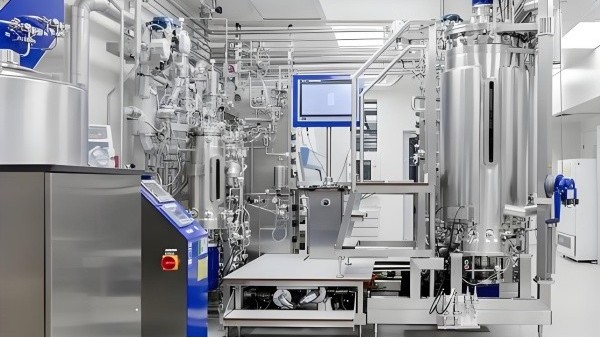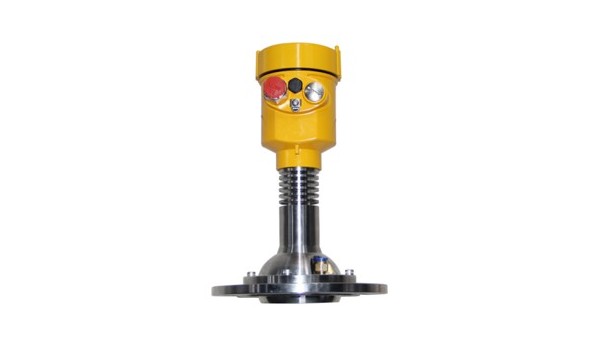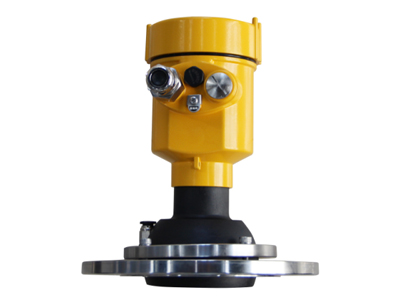BETTER TOUCH BETTER BUSINESS
Contact Sales at KAIDI.
Radar Level Meter As an advanced non-contact measuring instrument, it has been widely used in the bioprocess field due to its unique advantages. Today we will take an in-depth look at the application of radar level meters in bioprocessing and reveal how they can help the development of bioprocessing.
Radar level meter adopts measurement methods such as pulsed microwave (PTOF) or frequency modulated linear continuous wave (FMCW) to measure the level by transmitting microwave signals to the measured medium and receiving the signals reflected back. It does not require direct contact with the measured medium, avoiding the risk of contamination and corrosion, and is particularly suitable for bioprocesses with high hygiene requirements. It is capable of achieving millimetre-level measurement accuracy, which meets the high-precision requirements of bioprocesses for liquid level measurement. Can measure a variety of media, including liquids, solid particles, slurries, etc., and is not affected by media dielectric constant, temperature, pressure and other factors. Less affected by environmental factors, temperature, gas, vapour and condensation, etc. have less impact on its measurement performance.

In the biofermentation process, level monitoring in the fermenter is crucial for controlling the fermentation process. Radar level meters can monitor liquid level changes in the fermenter in real time to ensure the stability and efficiency of the fermentation process. For example, in the production of antibiotics, by accurately controlling the liquid level inside the fermenter, the fermentation conditions can be optimised to improve the yield and quality of antibiotics. During enzyme reactions, the concentration of substrates and products as well as the volume of the reaction system can change. The radar level meter can monitor the liquid level changes in the enzyme reactor in real time, providing an important basis for the control of the reaction process. By precisely controlling the volume of the reaction system, the enzyme reaction conditions can be optimised to improve the catalytic efficiency of the enzyme and the yield of the product. In the process of cell culture, the liquid level monitoring of cell culture medium is an important link to ensure the normal growth and propagation of cells.

The radar level meter can monitor the liquid level change in the cell culture vessel in real time to ensure the adequate supply of cell culture medium. At the same time, by monitoring the liquid level changes during the cell culture process, it can also understand the growth status and metabolism of the cells, providing reference for the optimisation of the cell culture process. During the storage and transport of biological products, the monitoring and management of liquid level in storage tanks is equally important. Radar level meter can monitor the liquid level changes in the storage tank in real time to ensure the safe storage and transport of biological products. By accurately controlling the liquid level in storage tanks, overflow and waste of biological products can be avoided and storage costs can be reduced.

By monitoring level changes in real time and precisely controlling response conditions, radar level meters can help companies optimise production processes and improve productivity and product quality. Because radar level meters use noncontact radar measurement without direct contact with the measured medium, they reduce the risk of wear and corrosion of the equipment and lower maintenance costs. The high-precision measurement capability of the radar level meter helps companies to better control the production process, thus improving product quality stability and consistency. In the field of bioprocessing, many media are corrosive or toxic, the use of radar level meters can avoid direct contact between operators and hazardous substances, reducing the probability of safety accidents. With the continuous development of bioprocess technology and the continuous growth of market demand, the application of radar level meter in the field of bioprocess will have a broader future. In the future, we can expect the following developments:: With the continuous progress of sensor technology and signal processing technology, the performance of the radar level meter will be further improved, such as higher measurement accuracy and stronger anti-interference ability. Combined with advanced technologies such as the Internet of Things and big data, the radar level meter will achieve remote monitoring, intelligent diagnosis and other functions, providing strong support for the intelligent production of bioprocesses. With the increasing awareness of environmental protection, the radar level meter will pay more attention to green production and sustainable development, and promote the bioprocess industry to a more environmentally friendly and efficient direction.
We are here to help you! If you close the chatbox, you will automatically receive a response from us via email. Please be sure to leave your contact details so that we can better assist